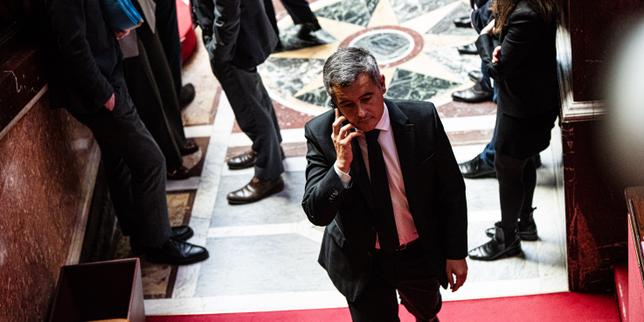Justice Minister Gérald Darmanin Faces Legal Complaint Following Controversial Visit to Nicolas Sarkozy in Prison
Justice Minister Gérald Darmanin’s prison visit to Nicolas Sarkozy has led to a formal complaint alleging conflict of interest and undermining judicial impartiality.
- • Gérald Darmanin visited Nicolas Sarkozy in prison on October 29, 2025, shortly after Sarkozy began serving a five-year sentence.
- • A collective of about thirty lawyers filed a complaint against Darmanin for implicit support, accusing him of compromising his impartiality.
- • Top prosecutor Rémy Heitz criticized the visit as undermining judicial independence and violating the separation of powers.
- • The complaint is filed with the Cour de justice de la République, the sole court competent to prosecute government members.
- • Sarkozy's appeal trial is scheduled for March 2026, intensifying concerns about potential judicial influence.
Key details
On October 29, 2025, French Minister of Justice Gérald Darmanin visited former President Nicolas Sarkozy in the Santé prison, where Sarkozy is serving a five-year sentence related to a Libyan corruption case. The visit, which lasted 45 minutes and was conducted under prison supervision, was preceded by Darmanin's public expressions of sadness and concern over Sarkozy's imprisonment and security conditions. This unprecedented visit has sparked significant controversy, particularly among legal professionals who argue it threatens judicial impartiality and the separation of powers.
A collective of around thirty lawyers filed a complaint with the Cour de justice de la République (CJR), accusing Darmanin of showing implicit support for Sarkozy and violating his role’s impartiality. Led by lawyer Jérôme Karsenti, the complaint claims Darmanin "necessarily took a position" by expressing personal compassion and visiting Sarkozy, thus compromising public trust in the justice system. Critics, including Rémy Heitz, France’s top prosecutor and co-chair of the Council of the Judiciary, have publicly condemned the visit as a violation of the constitutional principle of separation of powers. Heitz warned that such actions could undermine the independence of magistrates, especially with Sarkozy’s appeal trial scheduled for March 2026.
The CJR remains the only body authorized to prosecute government officials for crimes committed during official duties, and this complaint adds a new legal dimension to the ongoing political and judicial debates surrounding Darmanin’s conduct. With heightened scrutiny on the Justice Ministry's neutrality, the episode underlines the fragile balance between political authority and judicial independence in France today.
This article was translated and synthesized from French sources, providing English-speaking readers with local perspectives.
Source articles (3)
Source comparison
Latest news
French Public Sees Rise in Political Violence Amid Pre-Municipal Election Tensions
Businesses Drive French Economy Amid Rising Financial Challenges for Youth
France Climbs to 4th Place in 2026 Winter Olympics Medal Table After Biathlon Relay Gold
XV de France to Field Largely Unchanged Lineup Against Italy in Six Nations
France and India Deepen Strategic Partnership with Focus on AI Regulation and Defense Cooperation
Data Breach Exposes 1.2 Million French Bank Accounts, Authorities Warn of Fraud Risks
The top news stories in France
Delivered straight to your inbox each morning.



